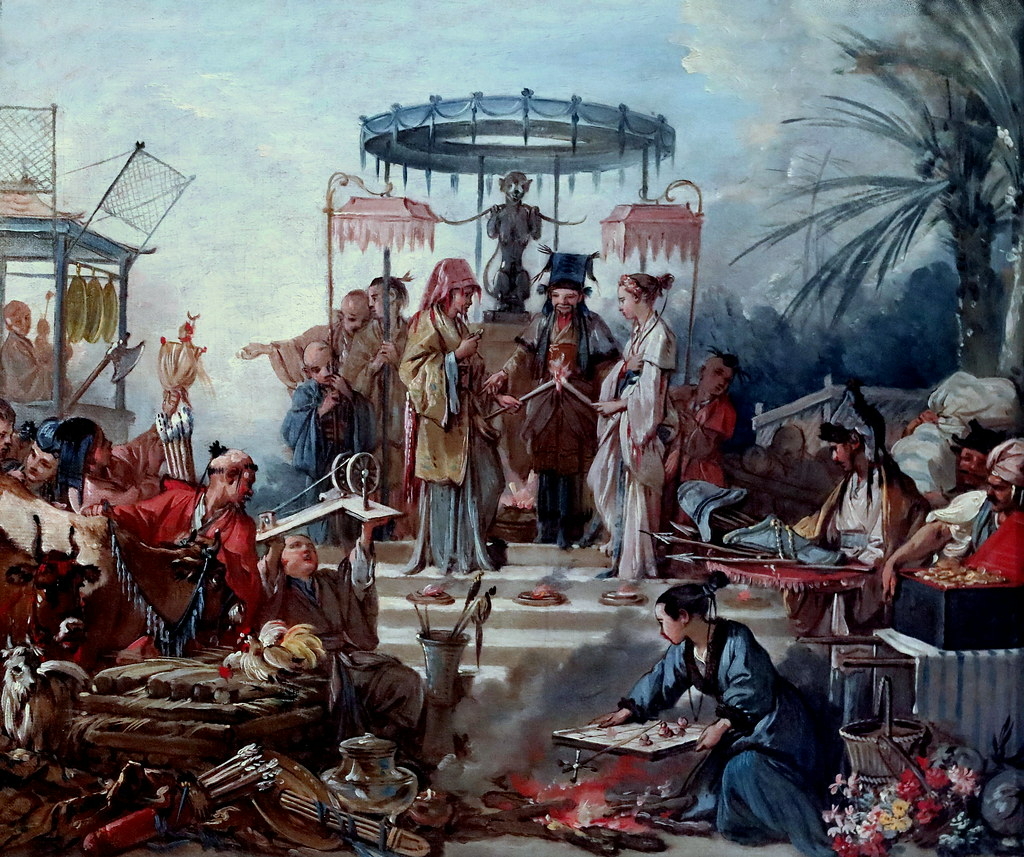Since the rise of controversial franchises like Grand Theft Auto and Mortal Kombat, a harsh stigma against video games has marked the medium as a distracting and sometimes harmful waste of time. Despite their reputation, the increasing use of electronics in classrooms and the growing acceptance of video games have led educators to consider using video games as a teaching tool. Educational games like Where in the World is Carmen Sandiego? and Oregon Trail have achieved this for decades, but recent attempts at blending gaming and learning have tried to find educational value in less conventional titles.
In 2021, Tore Olsson, a professor at the University of Tennessee, Knoxville, taught a history course focused on the game Red Dead Redemption and its 2018 sequel. Recently, Poland added the war-themed strategy game “This War of Mine” to your national school reading list. None of these titles were designed with educational use in mind, but their presence in school curricula suggests that commercial video games can deliver lessons and engage students in ways that other teaching methods cannot replicate.
Education Through Exposure
Although many video games are devoted to historical conflicts, these events often serve only as a background to the game. Countless military shooters take place during World War II, but few attempt to educate players about the real-world people and settings that contextualize their digital firefights. Read also : Meet the Gamers: Why Queer Representation Is Exploding in Video Games. However, some exceptions carefully incorporate history into their narratives and worlds, thus educating players about the sights and circumstances of certain eras.
The Red Dead Redemption games are some of the best examples of this type of education. As Olsson noted in his announcement of the course, the narratives of both installments highlight the various social ills that lingered in America during the transition from the 19th century to the 20th. The first game shows players the end of the outlaw age as the country moves toward rapid expansionism and commercialization. Red Dead Redemption 2 acts as a prequel set 12 years before the first game, allowing players to see major changes between the two different settings as they explore the game’s world. The stories and characters presented in these games may be fictional, but when players observe the changing cultural and technological climate surrounding their conflicts, they may better understand history through perspectives that textbooks can only dream of.
Similarly, the Assassin’s Creed franchise tries to immerse players in its historical locations, but differs from Red Dead Redemption by placing entries in vastly different eras and settings. This results in multiple loosely connected narratives that move between ancient Egypt, the Italian Renaissance, the Second Industrial Revolution, and numerous other important points in history.
Each installment also weaves significant events and people into its narrative, putting a much greater focus on real-life events than many other history-based games. However, its depiction of grounded and fantastic fictional events alongside these historical moments creates a problem for its educational value. Students who are not familiar with certain events and figures may have trouble distinguishing between the parts based on history and those invented by the game. Fortunately, most entries contain extensive glossaries detailing the various people and locations players encounter during their gameplay, as well as additional information about the historical events depicted in the story. Assassin’s Creed: Origins also introduced the “discovery tour,” which removes combat and allows players to freely explore the open world by visiting informative landmarks and participating in educational tours.
Games like Assassin’s Creed and Red Dead Redemption won’t replace textbooks, but they can introduce students to topics in a more immersive and engaging way than most other educational formats. A 2020 study tested this by evaluating multiple history classes that used scenes and images from the Assassin’s Creed series. Although the students were not given access to the game during these lessons, they still preferred visual representations of historical moments to using textbooks. Furthermore, students felt that the class was more informative when teachers gave lectures that provided additional context and highlighted inaccuracies in these scenes. As such, video games can spark student interest and provide basic understanding of educational topics.
Applying Lessons in Gameplay

While some video games introduce educational subjects through their stories, others use gameplay to test the player’s familiarity with certain topics. City management games such as Cities: Skylines and the SimCity series task players with overseeing various economic and infrastructural aspects of a city. To see also : When will Making the Cut Season 3 come to Prime Video?. While some schools have attempted to use these types of games to introduce younger students to concepts such as taxation, zoning, and budgeting, more advanced courses can use these games as a way for students to put their lessons into practice.
In a 2015 study, a class of urban geography students was tasked with using SimCity 4 to design cities according to specific urban planning theories and concepts they had learned that semester. For example, one student modeled his city after a university campus, while another used the 2013 movie “Snowpiercer” as inspiration for his transportation system. By learning to incorporate these defined concepts into their creatively constructed cities, students developed an in-depth understanding of the city planning process and witnessed the positive and negative effects of their designs through play. Although SimCity has limitations that make it far from a perfect replication of reality, it proves that video games can provide open-ended learning experiences in subjects that often rely on rigid curricula.
Similarly, the Kerbal Space Program provides lessons in physics and engineering in a way that is accessible to students of all ages. The game tasks players with managing a space center, where the player manages the funding, scientific research, and construction of spacecraft. This latter goal is undoubtedly the most significant feature of the Kerbal space program, as the challenge of creating functional rockets can initially seem as difficult as actual rocket science. The game provides a large selection of different parts that determine the ship’s weight, stability, heat resistance, fuel capacity and numerous other factors that are essential for a successful launch. As such, its complicated but rewarding construction feature forces players to learn about the mechanics of rocket design.
Kerbal Space Program’s simple gameplay and semi-realistic physics have made it an essential part of multiple educational projects. The 2021 Virtual Aviation Summer Camp used the game to introduce high school students to the basic principles of aircraft design. In this camp, the students used the knowledge they acquired in the lectures to solve certain tasks in the game. They started with simple tasks such as creating a stable airplane, but progressively escalated in scope until the students were able to perform a successful virtual moon landing. The Kerbal Space Program allows inexperienced students to directly communicate and understand advanced scientific concepts that would be difficult to grasp through textbooks alone. However, the mechanical depth and breadth of game content extends far enough to suit both introductory and advanced courses.
Educational Experiences with Commercial Foundations
Unlike other media, commercial video games can be easily modified to suit school purposes. Kerbal Space Program, Minecraft and Portal 2 provide educational editions for academic use. See the article : Sega wants to adapt more video games after the success of the Sonic movie. These alternative versions allow teachers to build entirely new levels with educational features not present in the original games. Some titles also provide free online tutorials, and Minecraft even allows users to upload their own custom assignments to their website.
Many other video games that lack official educational alternatives can still be repurposed as teaching tools. Mods (unofficial game changes or additions) can help educators transform popular titles into new learning experiences. With mods, players can recreate important landmarks or entire countries in an open world environment, add new features to simulation titles, and recreate important historical events in strategy games. One impressive mod for Civilization IV takes advantage of the game’s focus on political and military strategy to recreate the events of the American Revolutionary War throughout the game.
Civilization IV typically places competing players on a randomized map where they control one of multiple competing factions. However, the mod changes the map to show cities involved in the American Revolution, with political leaders and weapons that match those of the era. The mod also uses in-game time progression to show battles on the same dates as they took place in real life. The effort put into the mod’s AI programming and assets far exceeds what one would expect from an educational tool, but it does a fantastic job of showing the potential of modded games to help students.
Do Video Games Belong in the Classroom?

Despite the benefits video games can bring to schools, many parents and teachers worry about the potential negative effects this medium can have on children. Most concerns about video games suggest that they may encourage violence and aggressive behavior or that they are highly addictive and may distract students from their academic priorities. But these criticisms of video games tend to exaggerate the truth about their actual effects on people.
Recent studies have found that violent games actually increase the frequency of aggressive thoughts and often desensitize people to acts of violence. A 2015 paper cited multiple tests in which participants who played violent games on a regular basis showed more aggressive personalities and less empathic behavior than other groups. However, a similar test in 2018 found that these negative traits were often only expressed during or immediately after exposure to violent games, as most participants lacked any signs of long-term effects.
Likewise, prolonged exposure to video games is also linked to sleep deprivation and possible addiction, but this can easily be prevented by treating them as tools to be used only when they are of educational benefit. Pairing in-game tasks with additional work, such as essays or additional reading, can further discourage students from playing for too long. Ensuring that students play in moderation will help courses use video games to engage students without encouraging unhealthy behaviors.
Not every educator understands that video games can be an invaluable teaching resource, and many will likely continue to ignore them. However, those who can carefully implement them into curricula will encourage students to learn more about the topics in their subject and develop a better understanding of complex topics. Using video games in the classroom may seem like a strange idea, but there is a lot of potential for improving education if more schools give this growing medium a fair chance.



